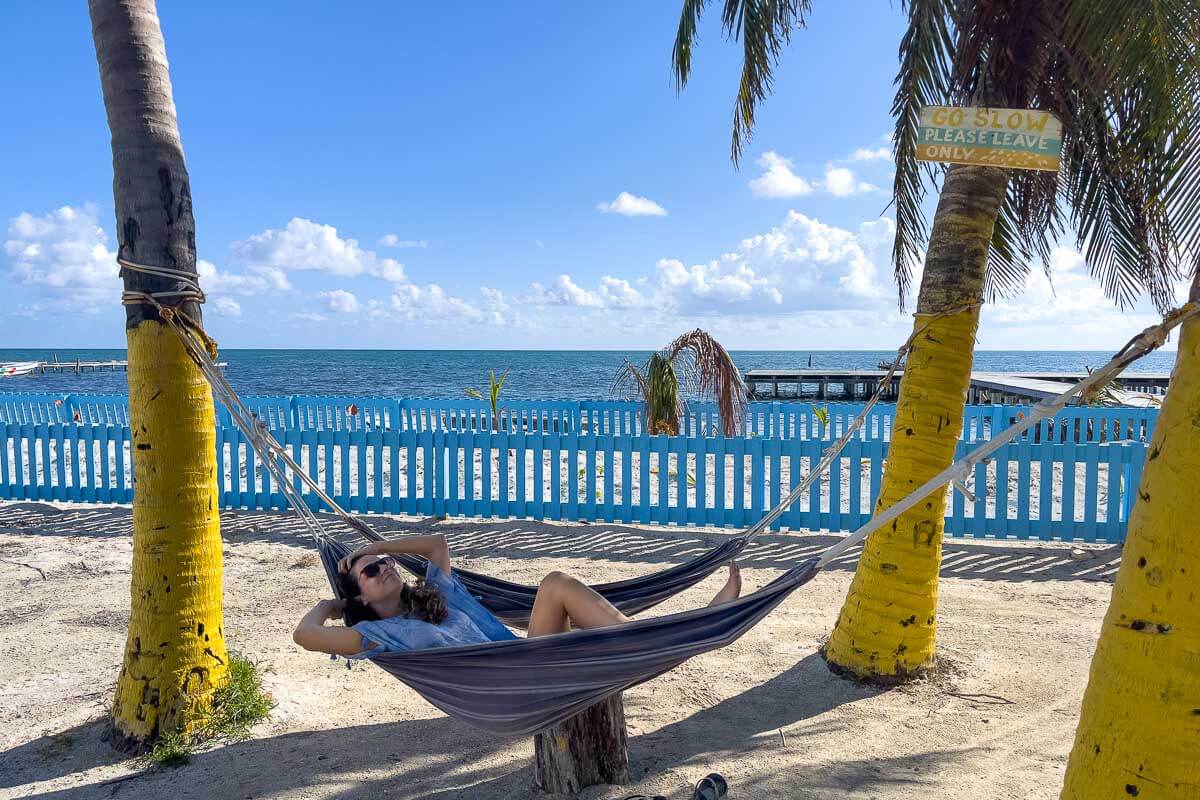The Harsh Truth: 19 Reasons to Leave the USA
Thinking about leaving the US? You’re not alone.
The skyrocketing cost of living, lack of work-life balance, simply wanting a fresh start somewhere new—more and more Americans are looking abroad for a better quality of life!
While no place is perfect, plenty of countries offer perks the US just doesn’t—whether that’s affordable healthcare, more paid time off, or just a better daily experience.
So, if you’ve ever thought, There’s gotta be something better than this, here are 19 solid reasons why packing your bags might not be such a crazy idea.
Side note, I did it 14 years ago and have zero regrets!
Table of Contents
- 1. Healthcare Costs & Lack of Universal Coverage
- 2. Lack of Paid Vacation
- 3. Expensive Higher Education & Student Loans
- 4. Work-Centric Culture
- 5. Better Work-Life Balance Elsewhere
- 6. Cost of Living
- 7. Tipping Culture
- 8. Gun Violence & Safety Concerns
- 9. Minimal Parental Leave
- 10. Food Quality & Regulations
- 11. Public Transport Woes and Lack of Walkability
- 12. Political Polarization
- 13. Surveillance & Data Privacy Issues
- 14. Lack of Affordable Childcare
- 15. Rising Homelessness & Housing Crisis
- 16. Limited Public Services & Social Safety Nets
- 17. Stress & Mental Health
- 18. Abortion Care & Women’s Rights
- 19. Quality of Life & Happiness Rankings
- So… What Can You Actually Do About It?
- More on Moving Abroad:
1. Healthcare Costs & Lack of Universal Coverage

Even with insurance, a simple ER visit can leave you drowning in bills. The US is one of the only developed countries without universal healthcare, meaning medical debt is a common struggle.
Meanwhile, countries like Canada, Germany, and Australia provide healthcare as a basic right—without the surprise $5,000 hospital bill.
RELATED: Nomad Insurance: Travel Medical Insurance for Digital Nomads!
2. Lack of Paid Vacation

The US is one of the only industrialized nations with zero federally mandated paid vacation days.
Many Americans get just two weeks a year (if that), while workers in France, Spain, and Brazil enjoy 30+ days of paid leave. Imagine actually having time to relax without losing income.
3. Expensive Higher Education & Student Loans

Want a degree? Be prepared to fork over tens of thousands of dollars—or take on massive debt that follows you for decades.
Meanwhile, many European countries (like Germany and Norway) offer free or low-cost higher education, even for international students.
4. Work-Centric Culture

The American mindset often glorifies overworking, hustle culture, and bragging about never taking a break.
In contrast, many countries prioritize work-life balance, offering shorter workweeks, stronger labor protections, and a real separation between work and personal time.
RELATED: 21 Visas to Help Americans Move Abroad (That You Haven’t Heard of)
5. Better Work-Life Balance Elsewhere

Did you know some countries ban employers from contacting workers after hours? France has a “right to disconnect” law, ensuring employees can actually enjoy their time off.
Meanwhile, in the US, answering emails at 9 PM is practically expected.
6. Cost of Living

From rent to groceries, prices keep climbing. Cities like San Francisco, New York, and Los Angeles are practically unaffordable unless you’re making six figures.
Places like Portugal, Mexico, and Thailand offer a much lower cost of living without sacrificing quality of life.
RELATED: How Traveling The World is Cheaper Than Existing in the US
7. Tipping Culture

In most countries, service workers earn a living wage, and tipping is optional or nonexistent.
In the US, tipping is practically mandatory in many situations, adding extra costs to every meal, drink, or service—all because companies refuse to pay fair wages.
I’m an ex-hospitality worker and will always tip, as it’s not the server’s fault for this common practice. But it’s something that needs a desperate change!
Unlock FREE Flights and Hotels!
Credit cards aren’t just for spending—they’re your ticket to epic travel rewards!
By using the right card for your everyday purchases, you could earn points for free flights, hotel stays, and more. No tricks, just smarter travel. Ready to see how?
8. Gun Violence & Safety Concerns

Mass shootings and high gun ownership rates make the US one of the most firearm-heavy countries in the world.
Many countries with stricter gun control laws, like Japan or the UK, experience significantly lower rates of gun violence.
RELATED: Travel Safety Tips—No Matter Where In The World You’re Going
9. Minimal Parental Leave

New parents in the US are often expected to return to work within weeks of giving birth.
Countries like Sweden and Canada offer up to a year of paid leave, ensuring parents have time to bond with their child without financial stress.
10. Food Quality & Regulations

Many chemicals and additives banned in Europe and other parts of the world are still allowed in US food.
If you’ve ever wondered why the same brand of soda tastes different abroad, it’s probably because the US version has ingredients that other countries won’t allow.
11. Public Transport Woes and Lack of Walkability

Owning a car is practically a necessity in most of the US, thanks to poor public transportation options.
Cities like Tokyo, London, and Berlin have efficient, affordable public transit that makes car ownership unnecessary.
Not to mention, most countries around the world have walkable cities and towns. Not only is it money-saving, but it’s also health-saving!
I must say, this reason right here is HUGE for me. Not having to drive and pay for car problems, insurance, and gas is a massive relief. All the walking makes me feel amazing.
12. Political Polarization

The political climate in the US feels increasingly tense and divided, making daily life feel stressful—especially during election cycles.
Many expats find that moving abroad provides a welcome break from the constant political noise. This is true now more than ever before.
13. Surveillance & Data Privacy Issues

The US has some of the weakest data privacy laws among developed nations.
In contrast, places like the EU have strict protections (GDPR), ensuring companies aren’t harvesting and selling your personal data without consent.
14. Lack of Affordable Childcare

Raising kids in the US is expensive. Childcare costs can be higher than rent, making it hard for many families to afford quality care.
Countries like Denmark and Finland offer affordable or even free childcare.
15. Rising Homelessness & Housing Crisis

Even people with full-time jobs struggle to afford housing in many US cities.
In some European and Asian countries, strict rent controls, social housing programs, and tenant protections make housing far more affordable.
16. Limited Public Services & Social Safety Nets

Lose your job in the US, and you’re often on your own.
Many countries provide robust social safety nets, including unemployment benefits, free healthcare, and job training programs to help people get back on their feet.
17. Stress & Mental Health

Burnout culture, long hours, and expensive healthcare make managing mental health in the US difficult.
Many other countries take mental well-being seriously, offering better work-life balance, more vacation time, and affordable therapy.
18. Abortion Care & Women’s Rights

With reproductive rights being rolled back in some states, many people are looking abroad for more stability.
Countries like Canada, the Netherlands, and Sweden guarantee access to reproductive healthcare without political interference.
19. Quality of Life & Happiness Rankings

The US rarely tops global happiness rankings, while countries like Finland, Denmark, and Switzerland consistently score the highest.
Factors like work-life balance, free healthcare, and overall well-being make some countries simply better places to live.
So… What Can You Actually Do About It?
If you’re reading this and thinking, Great, now I feel even worse because I can’t just up and leave, I hear you. Moving abroad isn’t as simple as booking a one-way ticket—it takes planning, patience, and sometimes a bit of luck.
But it’s absolutely possible, and plenty of people (including me!) have done it.

The first step? Figure out your options. Countries with better work-life balance, affordable healthcare, and lower costs of living want skilled workers, remote employees, and even retirees.
There are work visas, digital nomad programs, student visas (some of which lead to residency), and even investment pathways for those who can afford it.
That said, it’s a process. You won’t get all the perks overnight, and you’ll need to navigate visas, bureaucracy, and cultural adjustments. But here’s the thing: even partial access to these ‘luxuries’ is better than being stuck in a system that doesn’t serve you.

Maybe you can’t get universal healthcare tomorrow, but you can move somewhere with cheaper medical costs. Maybe you won’t have the perfect job waiting for you abroad, but you can find a way to work remotely or pick a country where your profession is in demand.
The point isn’t that moving abroad is easy. The point is that it’s possible. And if you’re feeling stuck, overwhelmed, or just ready for something better, that’s what my blog is all about—helping you figure out how to make it happen.
So if you’re serious about getting out, start researching, exploring visa options, and taking small steps toward your escape. You don’t have to stay stuck. You do have choices. You just have to be bold enough to take them!



